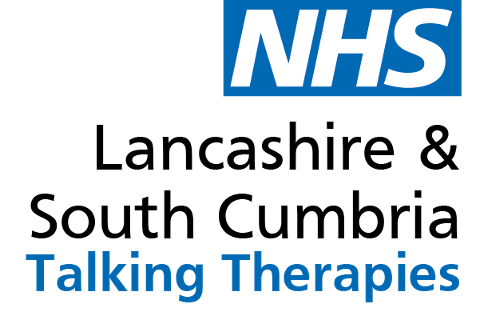This page contains useful resources which you may find helpful before, during and after talking therapy.
Disorder specific self help booklets
Visit our self help booklet library. The library covers the most common mental health problems.
Lancashire and South Cumbria Mental Health Crisis Line
Telephone: 0800 953 0110
If you need urgent help as you are in mental health distress, then there is always someone you can call.
Our Mental Health Crisis Line is available 24 hours a day, 7 days a week.
Samaritans
Around the clock, confidential support for anyone who needs help, whatever they are going through.
Freephone: 116 123
Email: jo@samaritans.org
Wellbeing and Mental Health Help Line
Person-centred listening environment for people requiring emotional support in relation to their own mental health or that of someone they know.
Freephone: 0800 915 4640 (Monday to Friday: 7pm to 11pm, Saturday and Sunday: 12 noon to 12 midnight).
Carers UK
Carers UK makes life better for carers.
Phone: 0808 808 777 (Monday and Tuesday 10am to 4pm).
Calm (Campaign Against Living Miserably)
CALM is a charity that aims to prevent male suicide by offering support to men in the UK
Freephone: 0800 58 58 58 (Monday to Sunday, 5pm to 12am).
Compassionate Friends
Support and Friendship for bereaved parents and their families by those similarly bereaved.
Phone: 0345 123 2304 (Open every day of the year from 10am to 4pm and 7pm to 10pm).
Email: helpline@tcf.org.uk
Domestic Violence 24 Hour Helpline
Works to promote protection for women and children suffering from or exposed to domestic violence.
Freephone: 0808 2000 247
Men's Advice Line
Helpline for male victims of domestic violence from a partner or ex-partner (or from other family members).
Freephone: 0808 801 0327 (Monday to Friday 9am to 5pm)
MOSAC
Supporting all non-abusing parents and carers whose children have been sexually abused.
Freephone: 0800 980 1958
National Self-Harm Network
National self-harm network .
N-Compass North West
Advocacy, carers services, health and wellbeing, young people's services, self-harm support, counselling and volunteering.
Phone: 03450 138 208 (Monday to Friday 8am to 6pm. Calls are charged at standard network rate).
NSPCC
This Helpline operates 24/7 so if you are an adult who is concerned or if you're worried about a child, even if you're unsure, contact professional counsellors for help, advice and support, this can be done anonymously if you wish.
Phone: 0808 800 5000
Rape Crisis
Help if you have experienced rape, child sexual abuse or any kind of sexual violence: details of local rape crisis services; information about sexual violence for survivors and people supporting survivors.
Freephone: 0808 802 9999 (12noon to 2.20pm and 7pm to 9.30pm every day of the year).
SANE line
SANEline is a national out-of-hours mental health helpline offering specialist emotional support, guidance and information to anyone affected by mental illness, including family, friends and carers.
Phone: 0300 304 7000 (Open every day of the year from 4.30pm to 10.30pm).
SEED Eating Disorders Support Services
Offering information, advice, education and practical help for individuals suffering from eating disorders and their carers.
Phone: 01482 718130
Sudden Trauma Information Service
Confidential helpline for all kinds of sudden trauma such as road traffic accidents, assault, industrial and domestic accidents and sudden death.
Phone: 0845 367 0998
Websites and online resources
Books
Overcoming book range
Overcoming books are available via the Reading Well Programme which promotes the benefits of reading for health and wellbeing. There two strands: Books on Prescription and Mood-boosting Books.
Reading Well for mental health
Reading Well for mental health provides helpful information and support for managing common mental health conditions, or dealing with difficult feelings and experiences. Some books also include personal stories from people who are living with or caring for someone with mental health needs.
Mind Over Mood: Change how you feel by changing the way you think
Christine A. Padesky & Dennis Greenberger (1995)
Cognitive Behavioural Therapy for Dummies
Rob Wilson & Rhena Branch (2005)
Overcoming Low Self-Esteem: A 3-part programme based on Cognitive Behavioural Techniques
Melanie Fennell (2006)
Coping With Fears and Phobias: A step-by-step guide to understanding and facing your anxieties
Warren Mansell (2007)
Feel the Fear and Do It Anyway: How to turn your fear and indecision into confidence and action
Susan Jeffers (2011)
Overcoming Body Image Disturbance: A programme for people with eating disorders
Lorraine Bell & Jenny Rushforth (2008)
It's Not All in Your Head: How Worrying about Your Health
Gordon J. G. Asmundson and Steven S. Taylor (2006)
A Special Scar: The experiences of people bereaved by suicide
Alison Wertheimer (2001)
Healing Grief: A guide to loss and recovery
Barbara Ward (1993)
The Empty Bed: Bereavement and the loss of love
Susan Wallbank (2010)
The Happiness Trap
Dr Russ Harris (2008)
Happiness Lessons from a New Science
Richard Layard (2005)
The Compassionate Mind
Paul Gilbert (2010)
The Compassionate Mind Approach to Building Self-Confidence
Mary Welford (2012)


